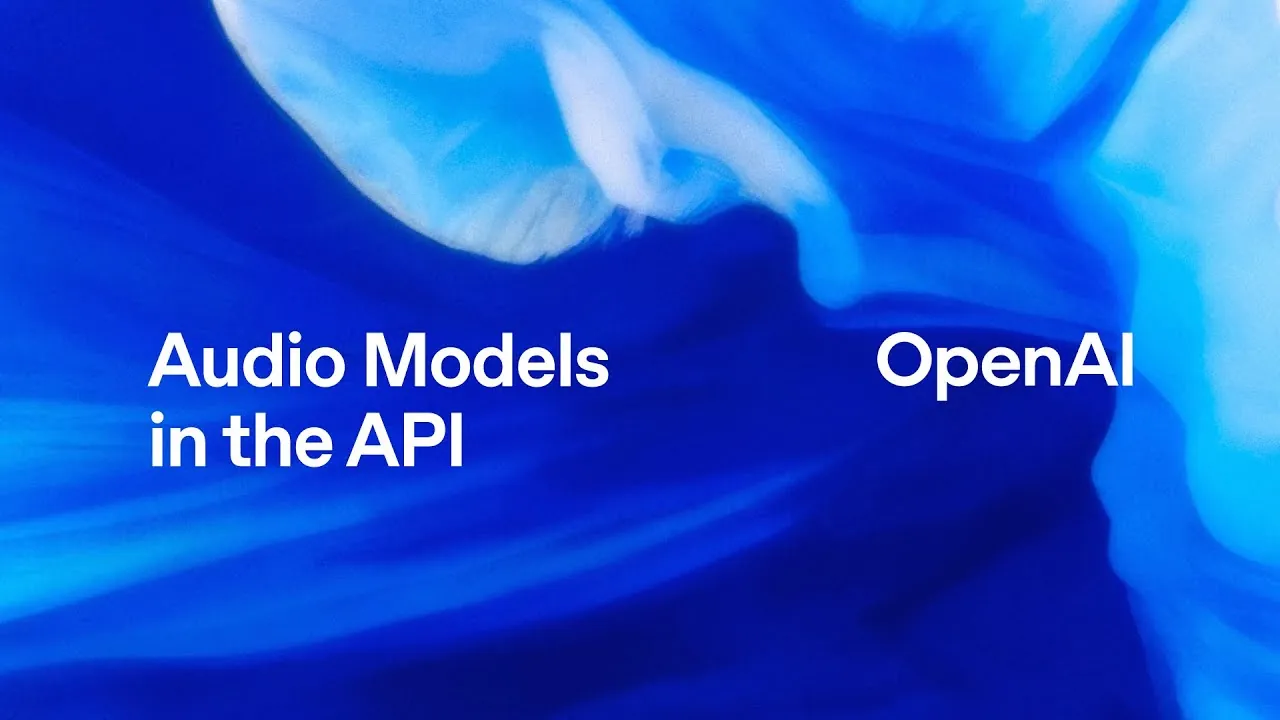OpenAI Introduces Cutting-Edge Audio Models for Developers

OpenAI has recently unveiled new audio models within its Application Programming Interface (API), significantly enhancing both speech-to-text transcription and text-to-speech (TTS) capabilities. Based in San Francisco, OpenAI introduced three advanced models tailored to help developers create applications that support complex workflows, which are likely to improve customer service and enhance user experience.
Enhanced Audio Models: Key Features
In a recent blog post, OpenAI shared insights regarding these new API-specific audio models. The organization highlighted its ongoing journey in the AI field, showcasing previous developments like Operator, Deep Research, and the Responses API. These earlier advancements have included built-in tools, but OpenAI suggests that the true potential of these AI agents emerges when they can effectively operate and interact beyond just text.
New Models Introduced
The latest models include:
- GPT-4o-transcribe: Optimized for speech-to-text tasks.
- GPT-4o-mini-transcribe: A smaller version focused on the same tasks.
- GPT-4o-mini-tts: Designed for text-to-speech functions.
OpenAI claims that these models outperform the previous Whisper models released in 2022. It’s worth mentioning that, unlike earlier models, these new ones are not open-source, which might limit accessibility for some developers.
The GPT-4o-transcribe model has shown notable improvements in the “word error rate” (WER) as assessed by the Few-shot Learning Evaluation of Universal Representations of Speech (FLEURS) benchmark, which evaluates multilingual speech processing across 100 languages. OpenAI credits these enhancements to specialized training methodologies, including reinforcement learning and extensive mid-training utilizing high-quality audio datasets.
Versatile Applications and Features
The speech-to-text models are crafted to perform exceptionally well in complex acoustic environments. They can accurately transcribe audio despite challenging conditions like heavy accents, background noise, and varying speech speeds. This level of accuracy is essential for applications in customer service, content creation, and more.
Advancements in Text-to-Speech
On the TTS side, the GPT-4o-mini-tts model introduces significant improvements. It allows developers to customize inflections, intonations, and emotional expressiveness. This feature is beneficial for a broad array of applications, ranging from customer support to engaging storytelling. However, it is important to note that the current version primarily offers artificial and preset voice options.
Understanding Pricing and Availability
OpenAI has provided a clear pricing structure for its new audio models, which can be found on its API pricing page. Here’s a breakdown of the costs:
- GPT-4o audio model: $40 (approximately ₹3,440) per million input tokens and $80 (around ₹6,880) per million output tokens.
- GPT-4o mini audio models: Offered at a more affordable rate of $10 (about ₹860) per million input tokens and $20 (approximately ₹1,720) per million output tokens.
These audio models are readily available to developers through the API. Additionally, OpenAI plans to integrate these functionalities with its Agents software development kit (SDK) to assist users in building effective voice agents, thereby broadening the reach of its AI solutions.
Observer Voice serves as a comprehensive platform for national and international news, editorials, art and culture content, quotes, and more. We also delve into historical topics, covering areas such as world history and Indian history, along with daily happenings. The site features entertainment news from India and around the globe.






